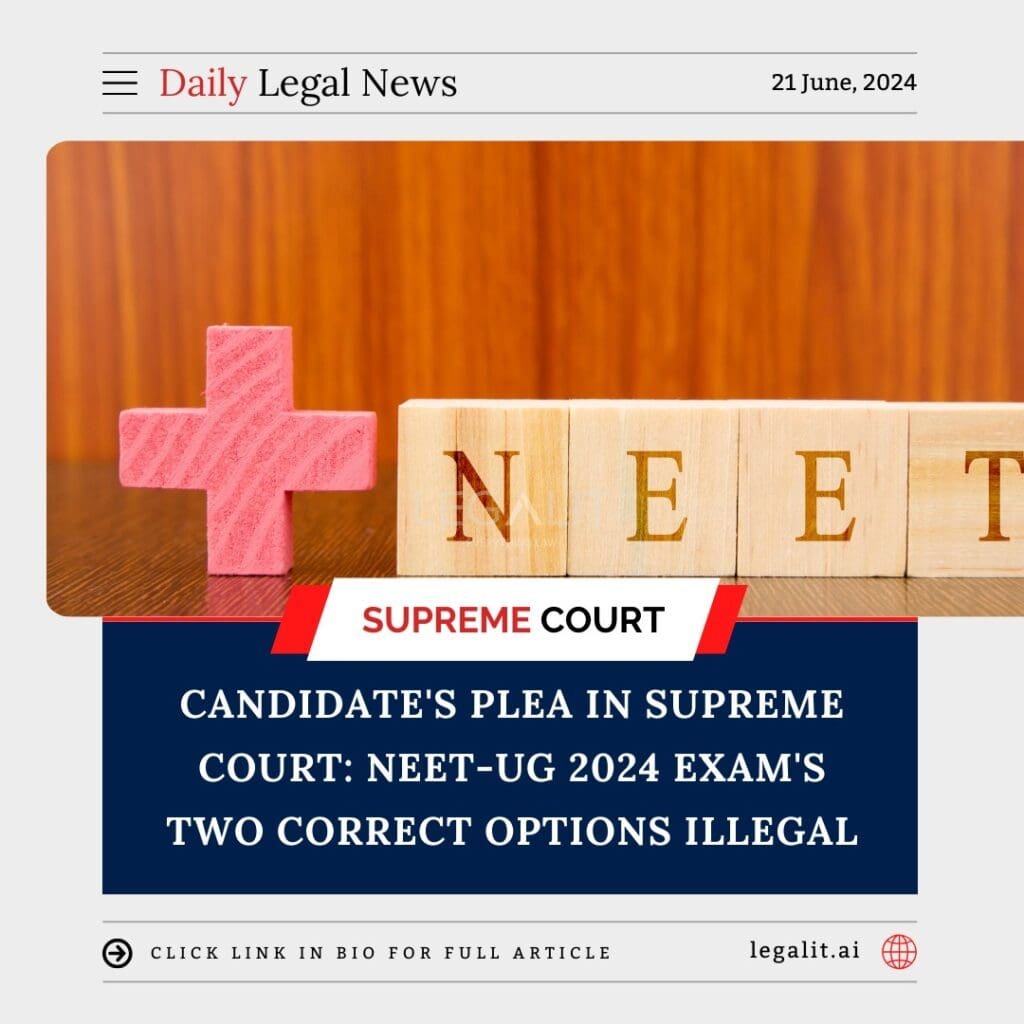
A recent plea in the Supreme Court challenges the legality of providing two correct options for one question in the NEET-UG 2024 exam. The petition was filed by a candidate who argued that this approach undermines the integrity and fairness of the examination process, potentially impacting the merit-based selection criteria essential for medical admissions.
Background
The National Eligibility cum Entrance Test (NEET) UG 2024 faced significant scrutiny when discrepancies were noted in the examination results. One of the central issues raised was the presence of a question in the NEET-UG 2024 exam that had two correct options in the answer key. The petitioner contended that this scenario created confusion and was unfair to candidates who, due to the ambiguity, may have skipped the question or selected an answer based on incorrect assumptions about the exam’s format.
Legal Grounds
The petitioner argued that the presence of two correct answers violates the principles of equality and fairness enshrined in the Indian Constitution. The plea stated that such discrepancies could lead to arbitrary evaluation, affecting the ranks and future prospects of candidates who took the exam in good faith. The petition seeks a directive from the Supreme Court to re-evaluate the affected question and provide a uniform solution, such as awarding equal marks to all candidates who either attempted the question or skipped it due to the confusion.
Court’s Response
The Supreme Court has sought a response from the National Testing Agency (NTA) regarding the allegations. The court underscored the importance of maintaining the sanctity of competitive exams and ensuring that all candidates are evaluated on a level playing field. The NTA has been asked to clarify the rationale behind including a question with two correct options and to propose measures to rectify any potential discrepancies in the results.
Implications
This plea has broader implications for the conduct of competitive exams in India. Ensuring transparency and fairness in the evaluation process is crucial for maintaining trust in these examinations. The outcome of this case could set a precedent for how examination bodies handle similar issues in the future, potentially leading to reforms in the preparation and vetting of question papers.